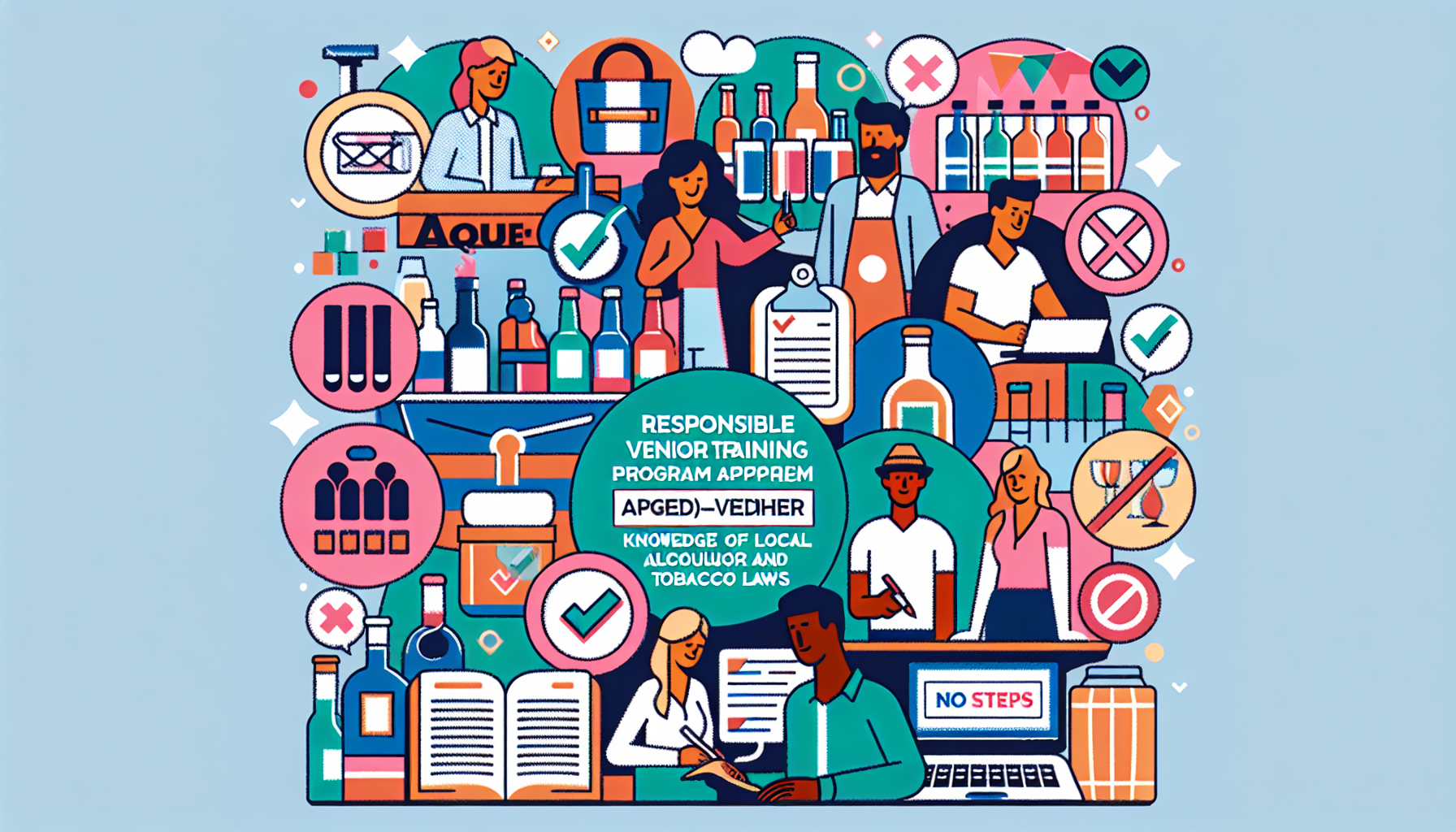Understanding ATC’s Approved Responsible Vendor Training in Louisiana
The Alcohol and Tobacco Control (ATC) in Louisiana mandates certain training requirements for vendors involved in the sale and service of alcohol and tobacco. This initiative, known as the Responsible Vendor (RV) Program, aims to ensure that businesses and their employees understand and comply with state laws concerning alcohol and tobacco sales, serving as a critical measure to prevent alcohol-related incidents and underage sales. Understanding the nuances of the ATC’s approved Responsible Vendor Training is essential for businesses wishing to operate within the legal framework in Louisiana.
Importance of Responsible Vendor Training
The RV Training Program plays a pivotal role in educating vendors about the legal age for purchasing alcohol and tobacco products, the importance of checking IDs, and the consequences of non-compliance. This training is not only about adhering to state laws but also promoting public safety and reducing alcohol-related harm in the community. By completing this program, vendors demonstrate their commitment to responsible business practices.
Who Needs to Undergo Training?
The RV Training is required for any employee of a business that sells or serves alcohol or tobacco products. This includes, but is not limited to, bartenders, servers, clerks, and managers. The law mandates that these employees must complete the training within 45 days of their hire date. Furthermore, businesses are required to ensure that their staff receive refresher training annually to maintain their certification as Responsible Vendors.
Components of the Training
The curriculum for the Responsible Vendor Training is comprehensive, covering various critical aspects to ensure vendors are well-informed. Some of the key topics include:
- The legal requirements for selling and serving alcohol and tobacco products in Louisiana.
- Methods for effectively checking IDs to verify age.
- Understanding the physiological effects of alcohol and signs of intoxication.
- Strategies for refusing service to intoxicated customers or those under the legal age limit.
It also includes an overview of the penalties for non-compliance, emphasizing the personal and professional consequences of failing to adhere to state laws.
Benefits of Being a Certified Responsible Vendor
Becoming a certified Responsible Vendor comes with significant advantages for both businesses and their employees. Certification can lead to reduced insurance premiums, as insurers recognize the reduced risk associated with trained staff. Moreover, it can enhance the reputation of the business in the community, signaling a dedication to safety and legal compliance. Importantly, the ATC may consider the certification favorably in the event of minor violations, acknowledging the business’s commitment to responsible practices.
How to Become Certified
To become a certified Responsible Vendor, businesses must ensure that their employees complete an ATC-approved RV Training Program. Upon successful completion of the program, participants receive a certification that is valid for one year. It is the employer’s responsibility to maintain records of their employees’ certification and ensure that annual refresher courses are completed.
Conclusion
The ATC’s Approved Responsible Vendor Training in Louisiana is a critical component of public health and safety, aiming to reduce the risks associated with alcohol and tobacco sales. By ensuring that employees are well-versed in legal requirements and responsible service practices, businesses can not only comply with state regulations but also contribute positively to their communities. For vendors, undergoing this training is a step towards professional growth and the establishment of a safe and compliant business environment.


